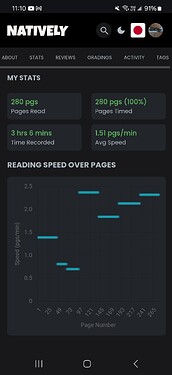Hmm, this is a difficult one. I guess the easy answer is “just read more”, but that’s kind of unhelpful right?
Thinking about it more seriously, I think there are a couple things all wrapped up in the idea of reading “entire sentences or paragraphs the same way you would in your native language”.
For one, you are doing more than just reading quickly. You are actually looking at whatever symbols on the page, associating them with meaning, processing and comprehending, and doing it all at some speed that varies depending on how familiar you are with whatever the text you are reading is. I think you already had your finger on this with your bullet points 1-5.
To take a look at the Wikipedia page for reading comprehension, it lists these skills as necessary for reading comprehension:
- know the meaning of words,
- understand the meaning of a word from a discourse context,
- follow the organization of a passage and to identify antecedents and references in it,
- draw inferences from a passage about its contents,
- identify the main thought of a passage,
- ask questions about the text,
- answer questions asked in a passage,
- visualize the text,
- recall prior knowledge connected to text,
- recognize confusion or attention problems,
- recognize the literary devices or propositional structures used in a passage and determine its tone,
- understand the situational mood (agents, objects, temporal and spatial reference points, casual and intentional inflections, etc.) conveyed for assertions, questioning, commanding, refraining, etc., and
- determine the writer’s purpose, intent, and point of view, and draw inferences about the writer (discourse-semantics).
You probably learned and practiced a ton of these skills in school in addition to all the other reading you ever did in your native language, so it’s a hidden part of why you are able to read faster. Now, to go from a word or phrase level to a sentence level in Japanese you have to work on all those skills again and that will help improve your overall ability (and as a consequence, speed as well) over time.
Some of those skills could be more heavily weighted in the case of learning Japanese versus your native language, such as knowing the meaning of all the words or knowing the connector words/identifying antecedents (aka more grammar and some more vocab), but they all go together.
Looking back at my own reading experience so far, the most important thing was just knowing many, many words, which meant doing lots of look ups over time. The second most important thing was having a strong grammar base so I didn’t become lost in what was happening in a book. With those two things plus exposure, I could start to deepen my understanding of the other things such as the authors intent or understand mood. I also became more able to visualize what I was reading and start chunking the words to read faster, because I could anticipate what words may come next to an extent (for example, you know the verb may be at the end since Japanese). So, from my own experience I guess I would give the advice for where you are at just to keep going with what you’re doing and not get discouraged and make sure you’re reading lots of fun stuff that interests you!
(I still don’t know words, misunderstand things, and read slowly at times btw. I don’t want to claim to be some kind of expert.  I’ve just been reading a lot for several years now…)
I’ve just been reading a lot for several years now…)
———
Looking beyond that, if you’ve already read very extensively and feel pretty solid in your reading comprehension, there are other factors that impact reading speed that I’ve personally encountered as physical versus digital, font size, actual book size (if it’s physical), how fast you push yourself to read, familiarity with the author/genre/time period and more. I’ve also noted that when I don’t read in Japanese for a while and have been reading in English or Korean, the transition back to vertical text is kind of jarring and slows me down. That’s all to say there is some kind of unknown X factor based on different things that make you faster or slower.
———
I feel relatively solid reading in Japanese (my reading speed is still much slower than in English, though), so a lot of those thoughts are coming from hindsight and me reflecting on my own experience and don’t have specific suggestions for how to deal with kanji or readings. But, I am going through the same process of slowly trying to become literate in Korean and retracing those steps, so I definitely think about this topic frequently. 
Some more concrete thoughts based on my Korean learning that are maybe helpful?:
- Learning and internalizing linking words between sentences and clauses has been very helpful
- Audio from dramas combined with reading webtoons and manga has been helpful for understanding slang and contracted speech in written form
- Learning more vocab is king!
- Listening more has helped to internalize the rhythm of the language, which helps me read more fluidly even if I don’t sub vocalize everything
- Reading at my level or easier things lets me flex my currently skills and build on them in a manageable way. Caveat, I’ll need to push past this and read harder stuff eventually, but I don’t have a strong base.
![]()


